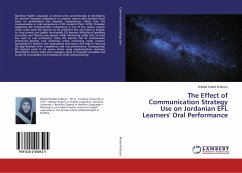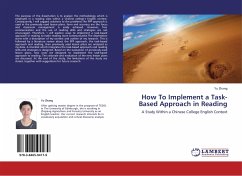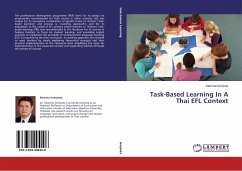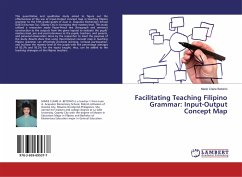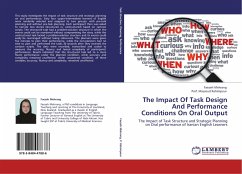
The Impact Of Task Design And Performance Conditions On Oral Output
The Impact of Task Structure and Strategic Planning on Oral performance of Iranian English Learners
Versandkostenfrei!
Versandfertig in 6-10 Tagen
39,99 €
inkl. MwSt.

PAYBACK Punkte
20 °P sammeln!
This study investigates the impact of task structure and strategic planning on oral performance. Sixty four upper-intermediate learners of English were randomly selected and assigned to two groups: with pre-task planning and without pre-task planning. Each participant then was asked to narrate two stories (structured vs. unstructured) based on cartoon scripts. The structured task had a problem-solution structure in which the events could not be reordered without compromising the story, while the unstructured task lacked a problem-solution structure and its events could easily be rearranged wit...
This study investigates the impact of task structure and strategic planning on oral performance. Sixty four upper-intermediate learners of English were randomly selected and assigned to two groups: with pre-task planning and without pre-task planning. Each participant then was asked to narrate two stories (structured vs. unstructured) based on cartoon scripts. The structured task had a problem-solution structure in which the events could not be reordered without compromising the story, while the unstructured task lacked a problem-solution structure and its events could easily be rearranged without losing coherence. The planners were given five minutes to plan their performance, while the non-planners had no time to plan and performed the tasks 30 seconds after they received the cartoon scripts. The data were recorded, transcribed and coded to measure the accuracy, fluency and lexical complexity of participants' performance. Results indicated that the structured task led to a morefluent performance under the planned condition, while accuracy and complexity remained unaffected. Under unplanned condition, all three variables, accuracy, fluency and complexity, remained unaffected.






